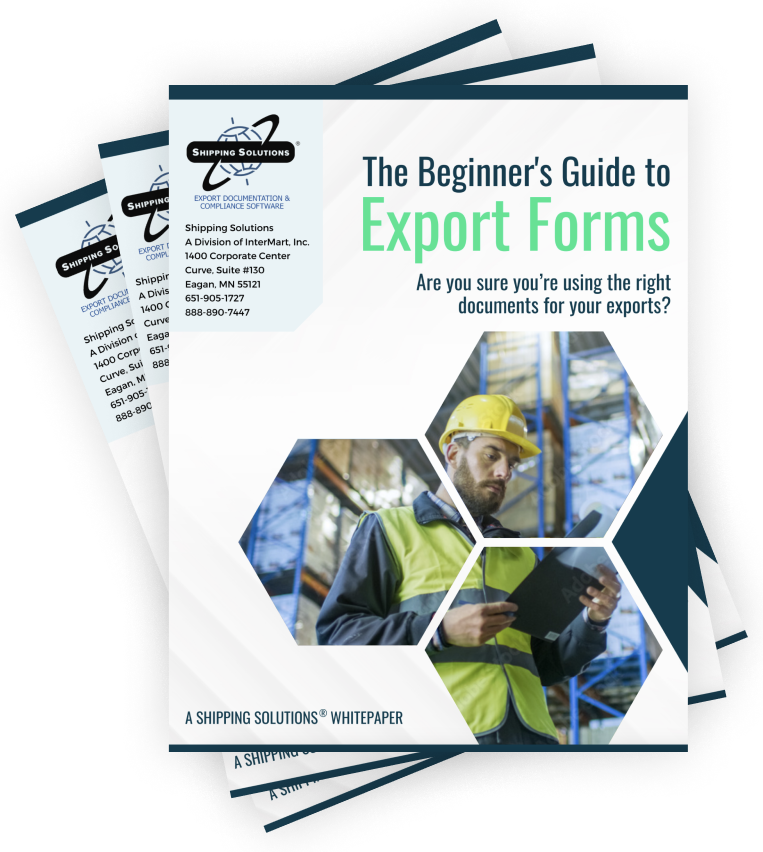The International Trade Blog Export Compliance
Export Compliance Starts with Your International Sales Team
On: April 20, 2015 | By:  Catherine J. Petersen |
4 min. read
Catherine J. Petersen |
4 min. read
 The sales team can be your biggest ally and supporter when communicating with your international customer. However, your sales team may not know about changing compliance issues or the fines and penalties that may face your firm if compliance is not a part of their day-to-day activities.
The sales team can be your biggest ally and supporter when communicating with your international customer. However, your sales team may not know about changing compliance issues or the fines and penalties that may face your firm if compliance is not a part of their day-to-day activities.
Here are 10 important facts to forward to your sales team that can provide information, generate a conversation, and enhance your company’s export compliance activities:
1. Know Embargoed Countries
Despite all the recent news about the U.S. normalizing relations with Cuba, the country is still currently one of the United States' embargoed countries or restricted destinations. You’ll find a list of embargoed countries and reasons for export controls at the Bureau of Industry and Security (BIS) website.
2. Check Denied and Restricted Parties
The leader of Boko Haram in Nigeria, Abubaker Shekau, is one of thousands of individuals and organizations on a series of government-published lists of denied or restricted parties with whom you cannot do business. While he may be one of the most famous names, there are other well known names on these lists as well.
You should check these lists prior to quoting, selling and delivering goods to foreign customers in the United States or abroad. Although there are dozens of different lists published by various U.S. agencies, you can screen all the parties in your export transactions against the International Trade Administration's Consolidated Screening List. While it doesn't include all the government "bad guy" lists, it includes the largest.
3. Determine Export License Restrictions
U.S. export regulations control the export of products; some are restricted, including circuit boards and encrypted software. View the Export Administration Regulations (EAR) or the International Traffic in Arms Regulations (ITAR) before exporting your products.
4. Add the Destination Control Statement
Your customer, your customer’s government, and/or the U.S. government often require additional statements for export transactions on your documents. The EAR and ITAR requires that your company include the following destination control statement on the commercial invoice:
These items are controlled and authorized by the U.S. Government for export only to the specified country of ultimate destination for use by the ultimate consignee or end-user(s) herein identified. They may not be resold, transferred, or otherwise disposed of, to any other country or to any person other than the authorized ultimate consignee or end user(s), either in their original form or after being incorporated into other items, without first obtaining approval from the U.S. Government or as otherwise authorized by U.S. law and regulations.
The EAR recommends that any quote or pro forma invoice you prepare for an export also include that statement.
5. Review List of Potential Penalties
Don’t think export regulations really matter? Download and share the free Don’t Let This Happen to You! booklet published by BIS to see a sample of the penalties that the U.S. government has issued against export companies and individuals who violate U.S. export laws.
6. Benchmark Success!
7. Prepare Proper Sales Quotes
Cross your T’s and dot your I’s in quotes. Export sales quotes are not revocable when the buyer’s country has signed the UN Convention on the International Sale of Goods. Make sure you include an expiration date on all your quotes. Visit the Pace Law School website to see a list of participating countries.
8. Use the Correct Trade Term: Incoterms 2020
FOB Plant is not an international trade term; Incoterms 2020 are the terms to use. Be sure to outline those costs you will cover by using an Incoterm to avoid profit erosion.
9. Review Customer's Import Requirements
The buyer’s country will often have special import requirements. Don't wait until you're ready to ship to start worrying about those requirements. Here's how to identify import country requirements.
10. Create an Export Compliance Program
There is personal responsibility in an export transaction. Export policies are designed to protect you and your organization. Learn how to create and implement an Export Compliance Program for your company and make sure you follow it.
This article, which was first published in July 2006, has been updated with current information and web links.
Like what you read? Subscribe today to the International Trade Blog to get the latest news and tips for exporters and importers delivered to your inbox.

About the Author: Catherine J. Petersen
In 1992, Catherine Petersen founded C J Petersen & Associates, LLC, a research, instruction and consulting firm located in St. Paul, Minnesota, USA. She has designed documentation and procedure manuals for exporters and has authored/co-authored five books.
Ms. Petersen has had day-to-day practical experience at a freight forwarder, a trading company, and an ocean carrier; she has been active in international business since 1980. Her background led her to develop C J Petersen & Associates, LLC, which is a collaborative consultancy that works with clients to identify compliance gaps and to resolve them. Ms. Petersen retired in 2022.



